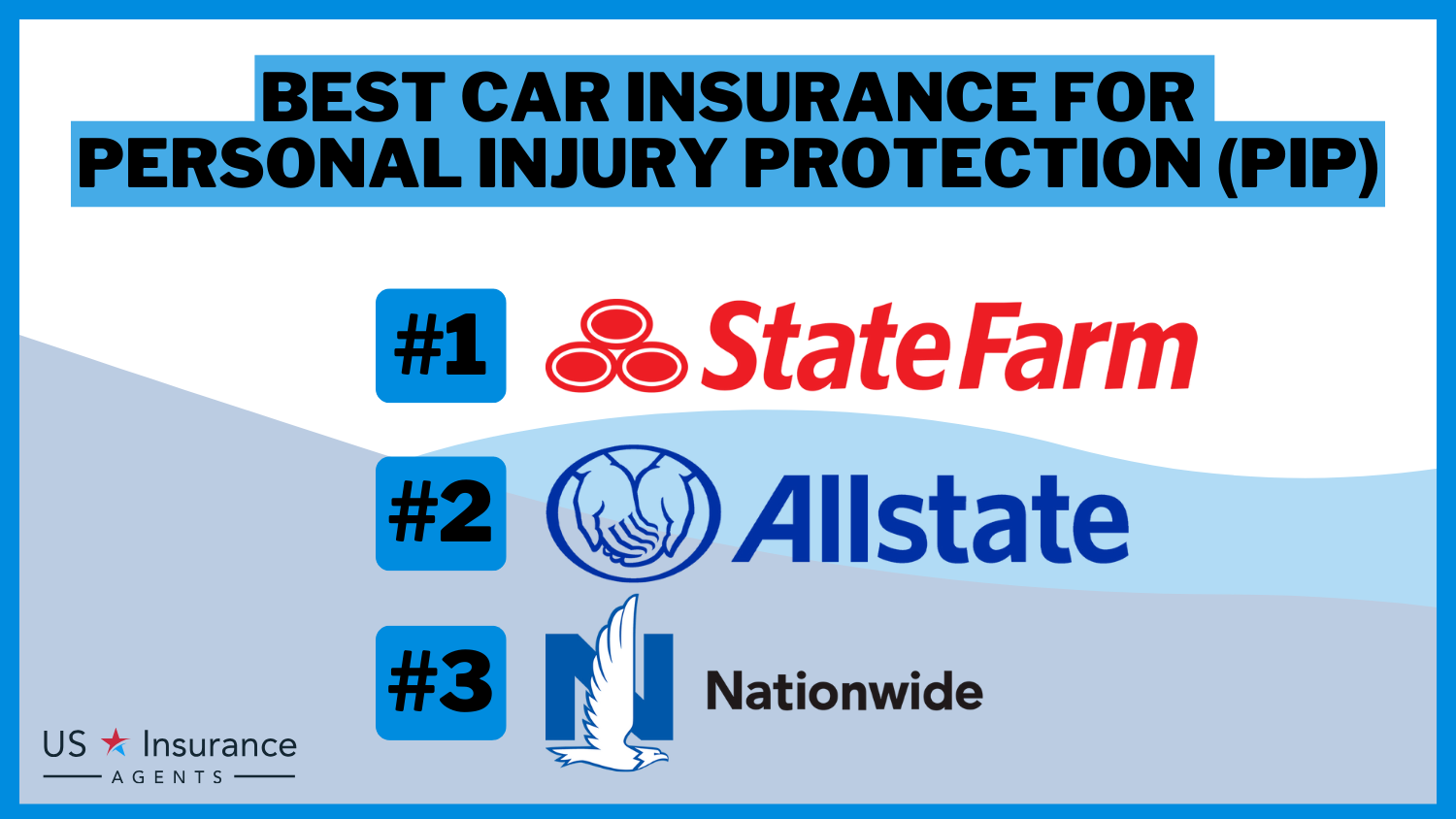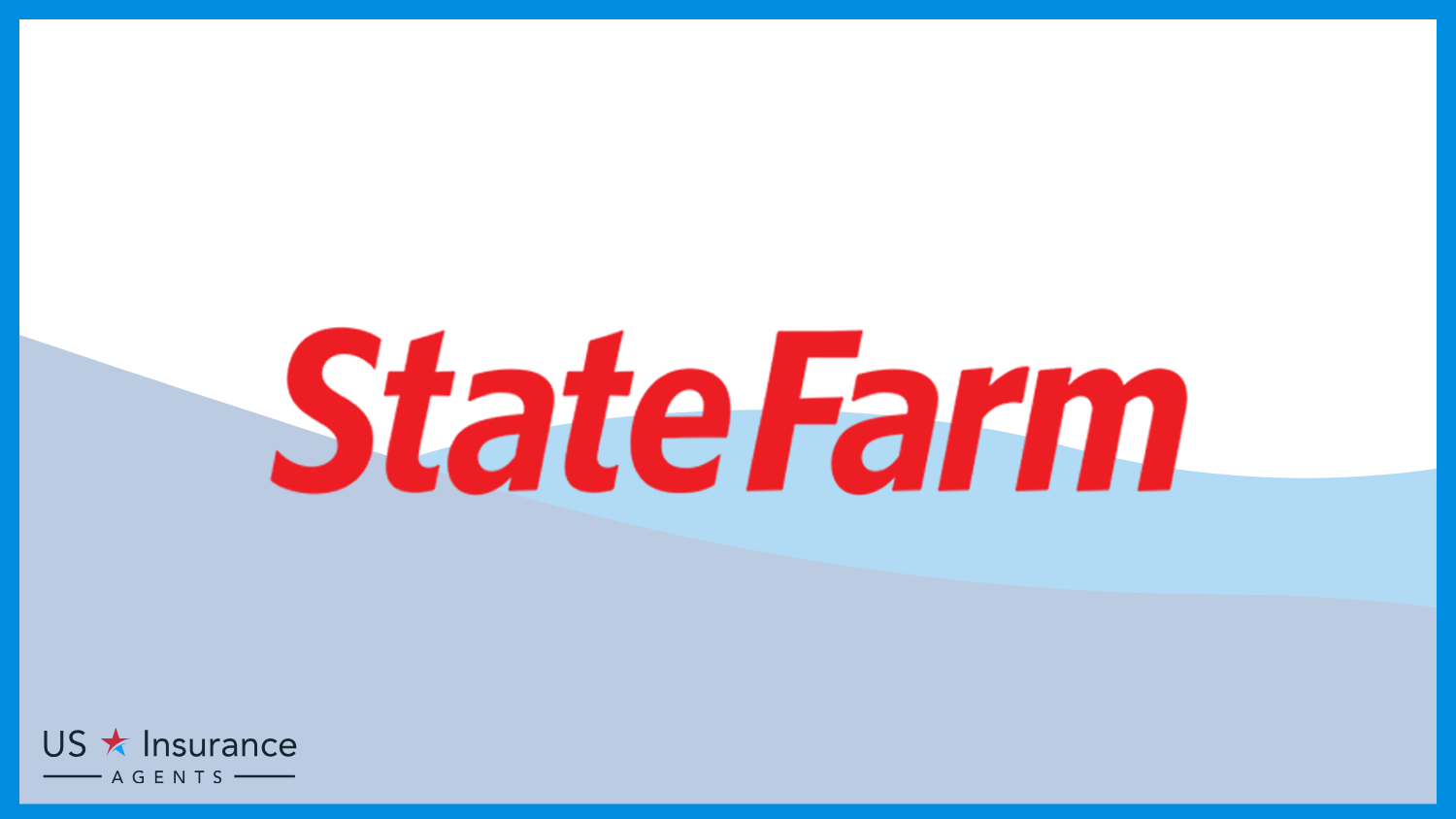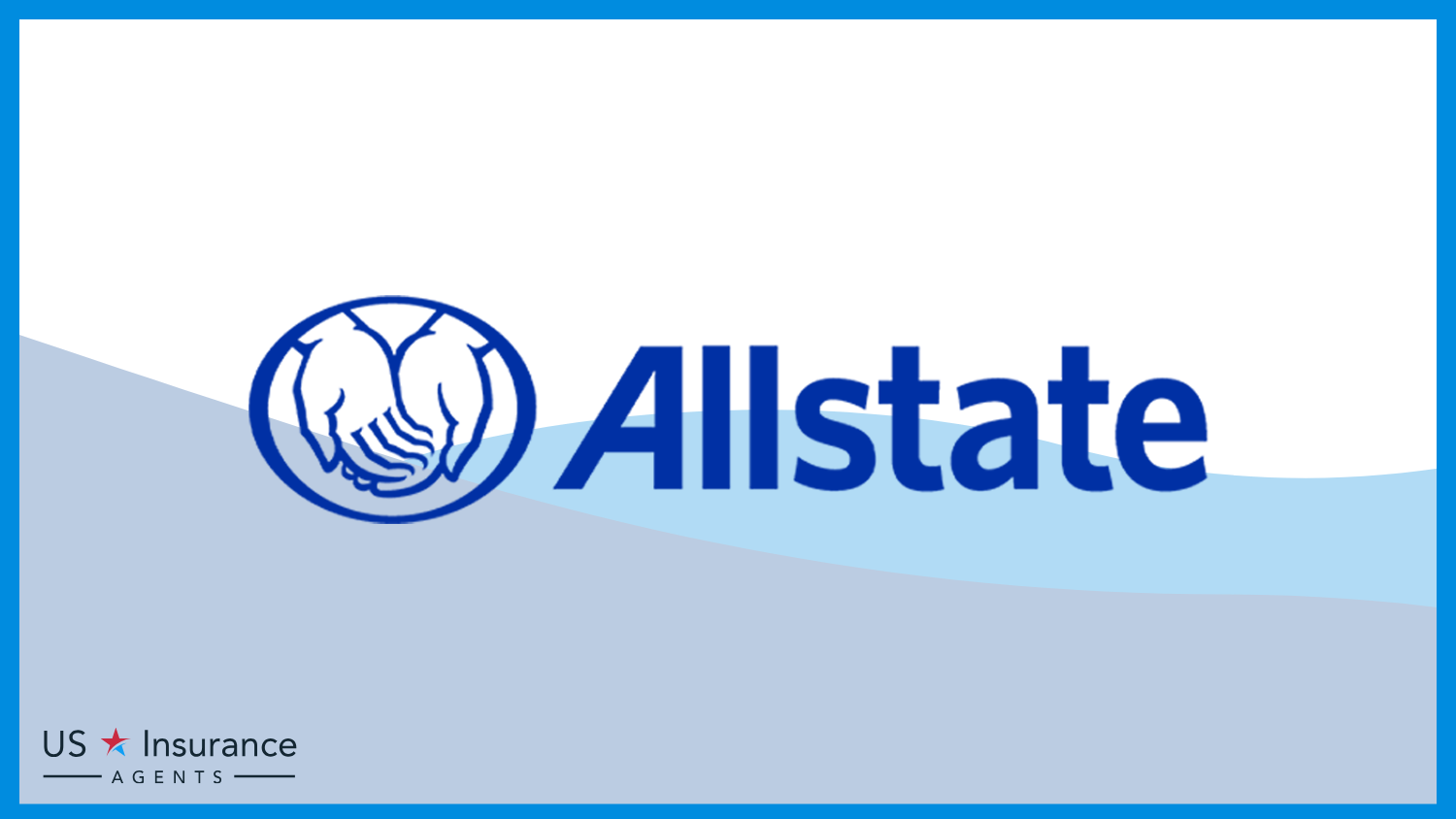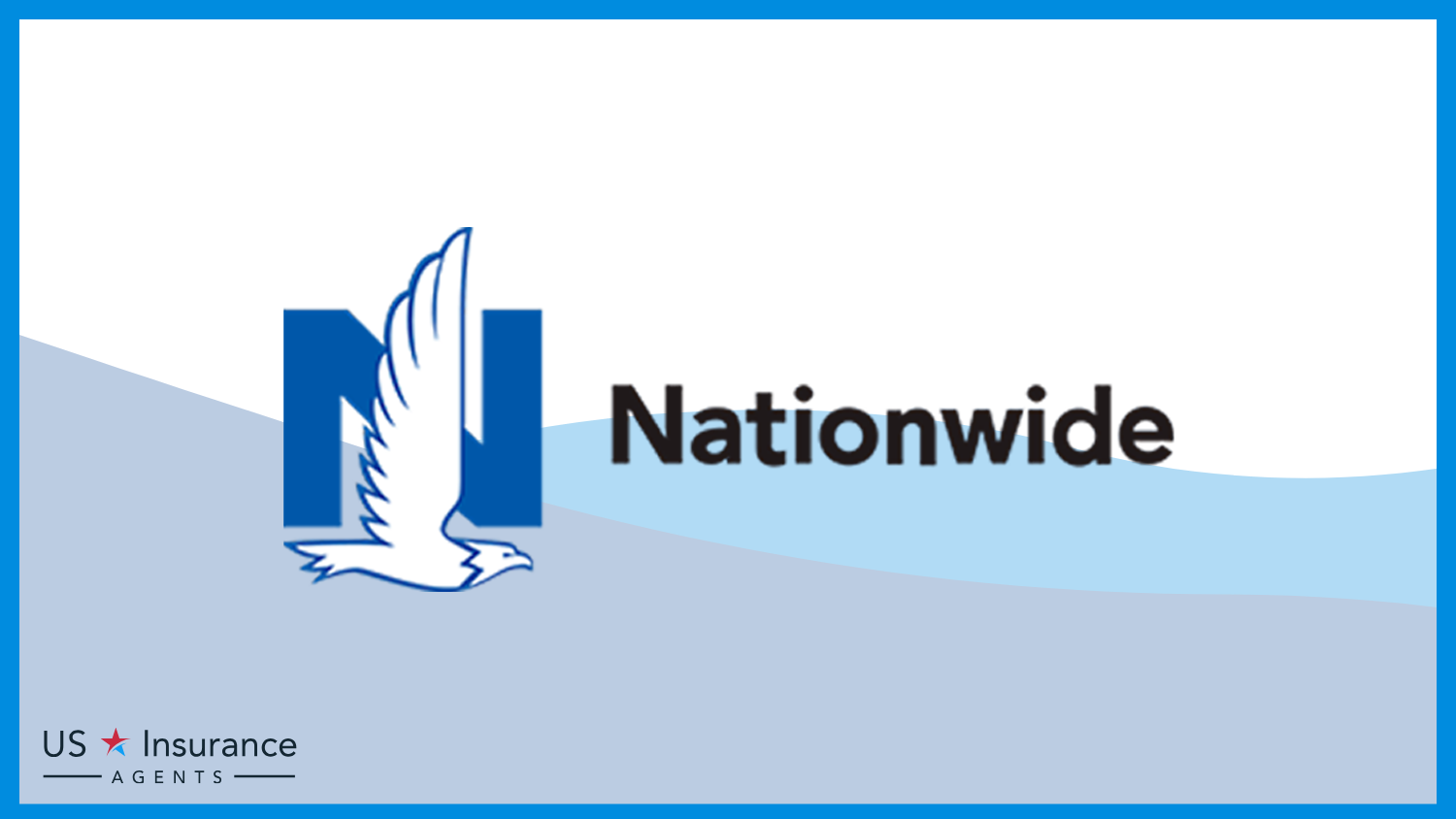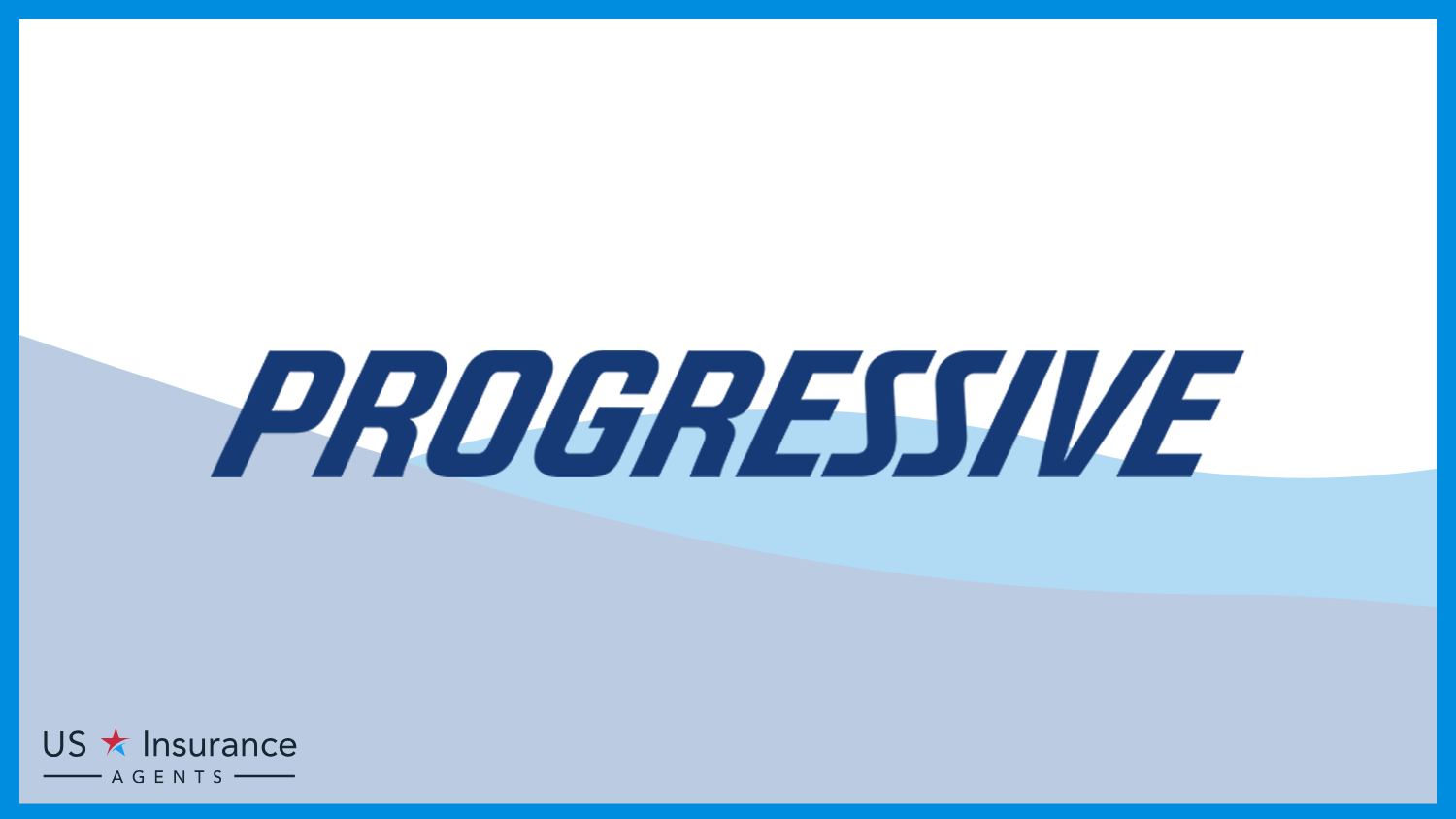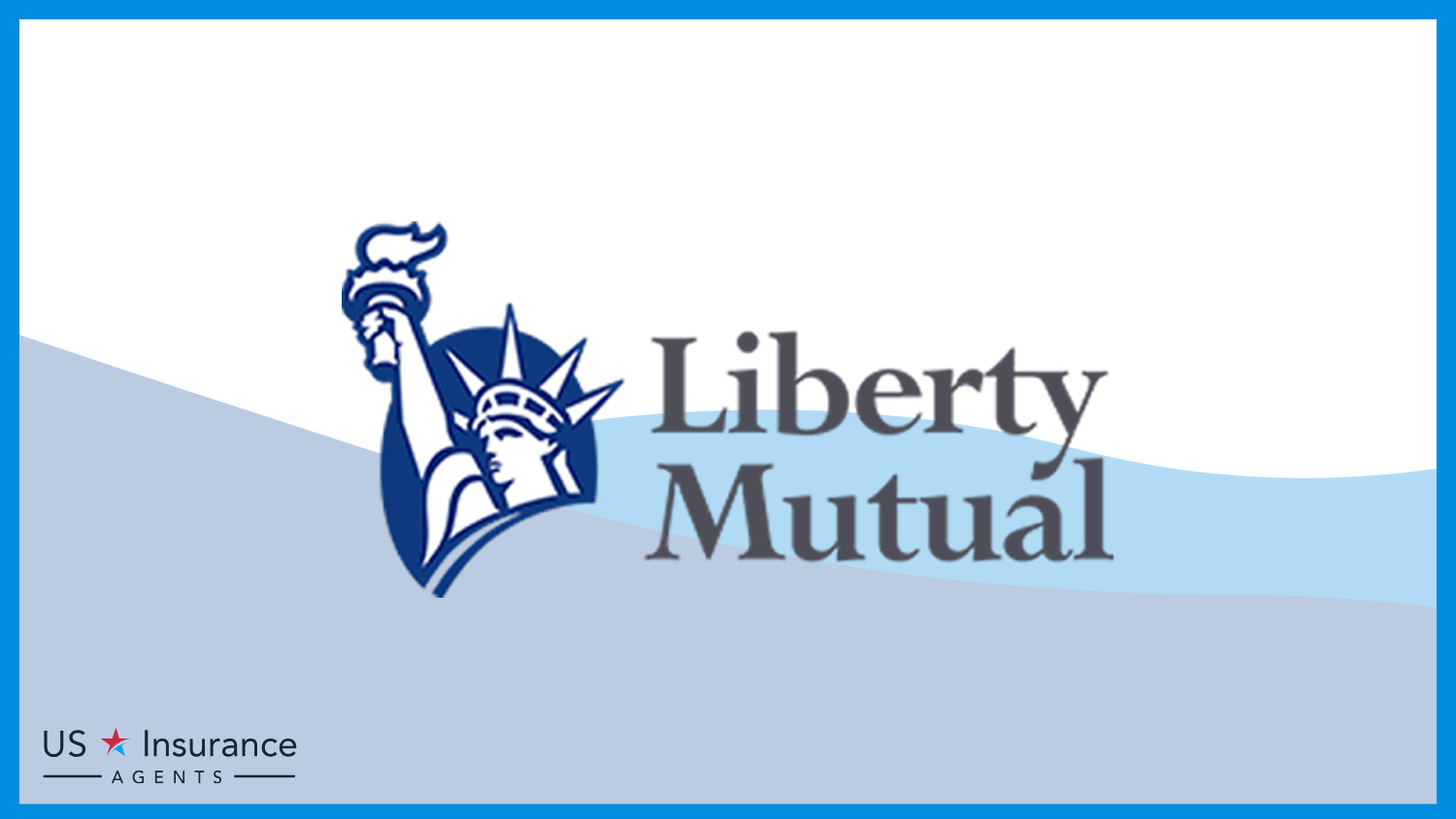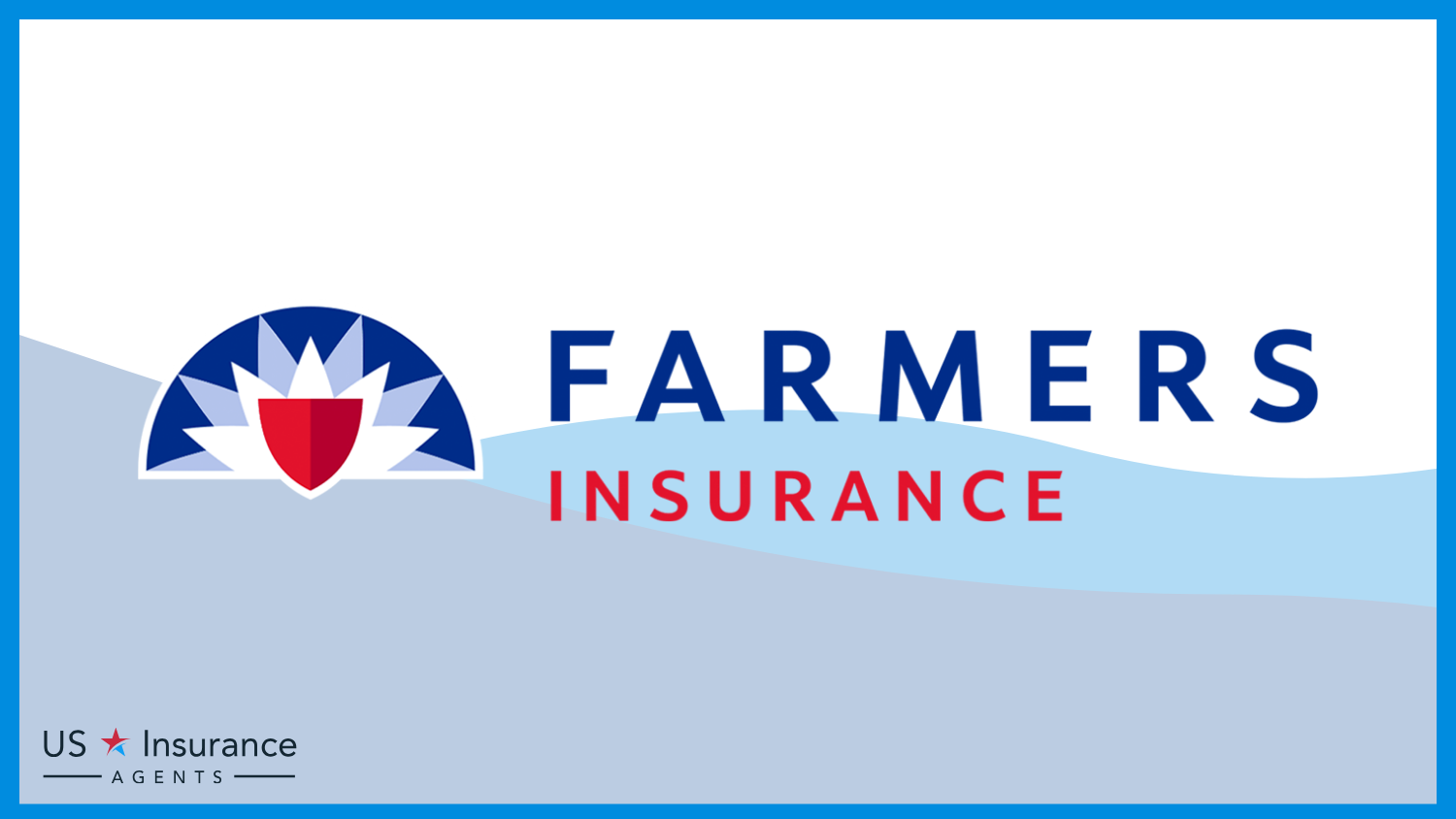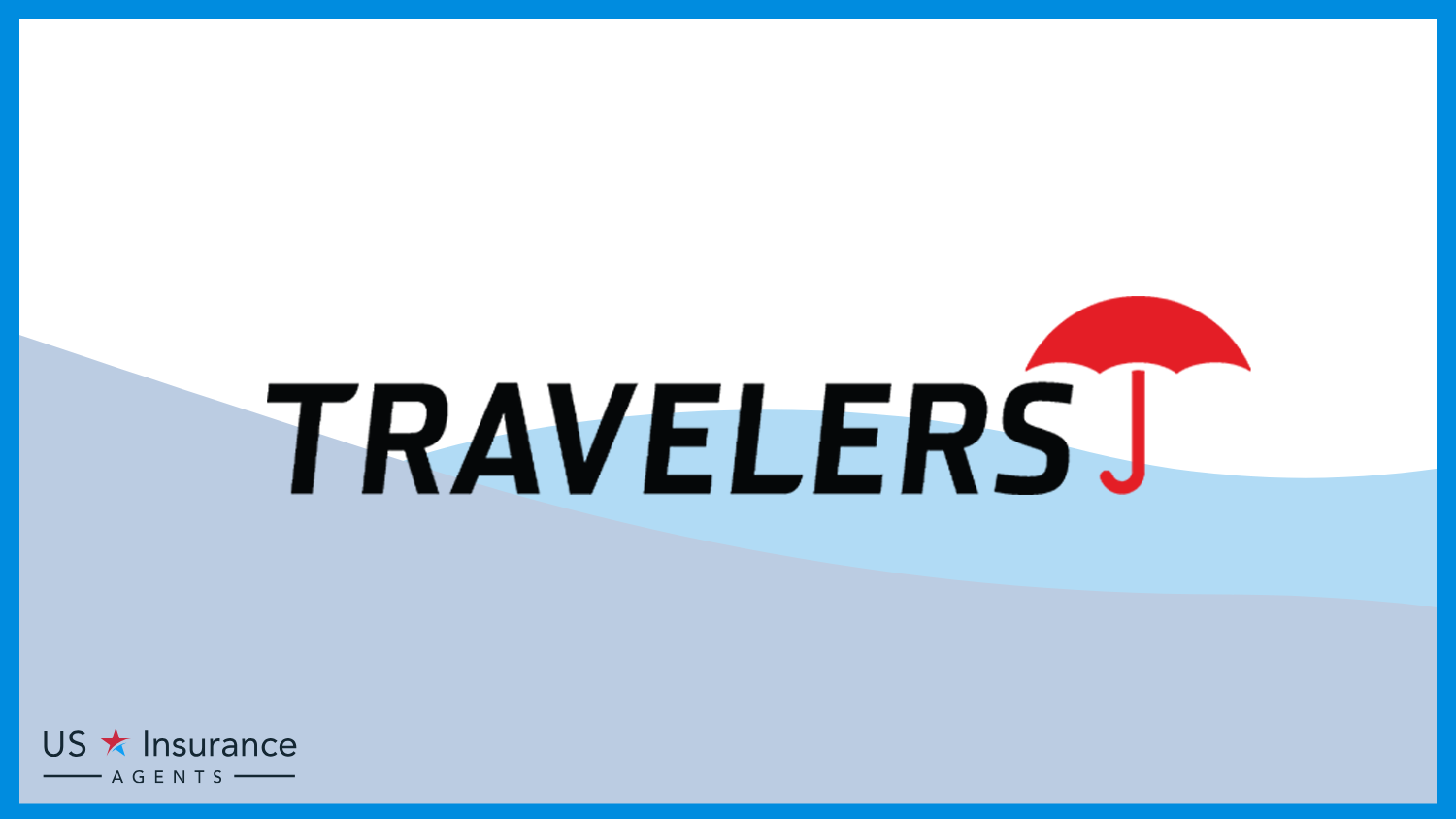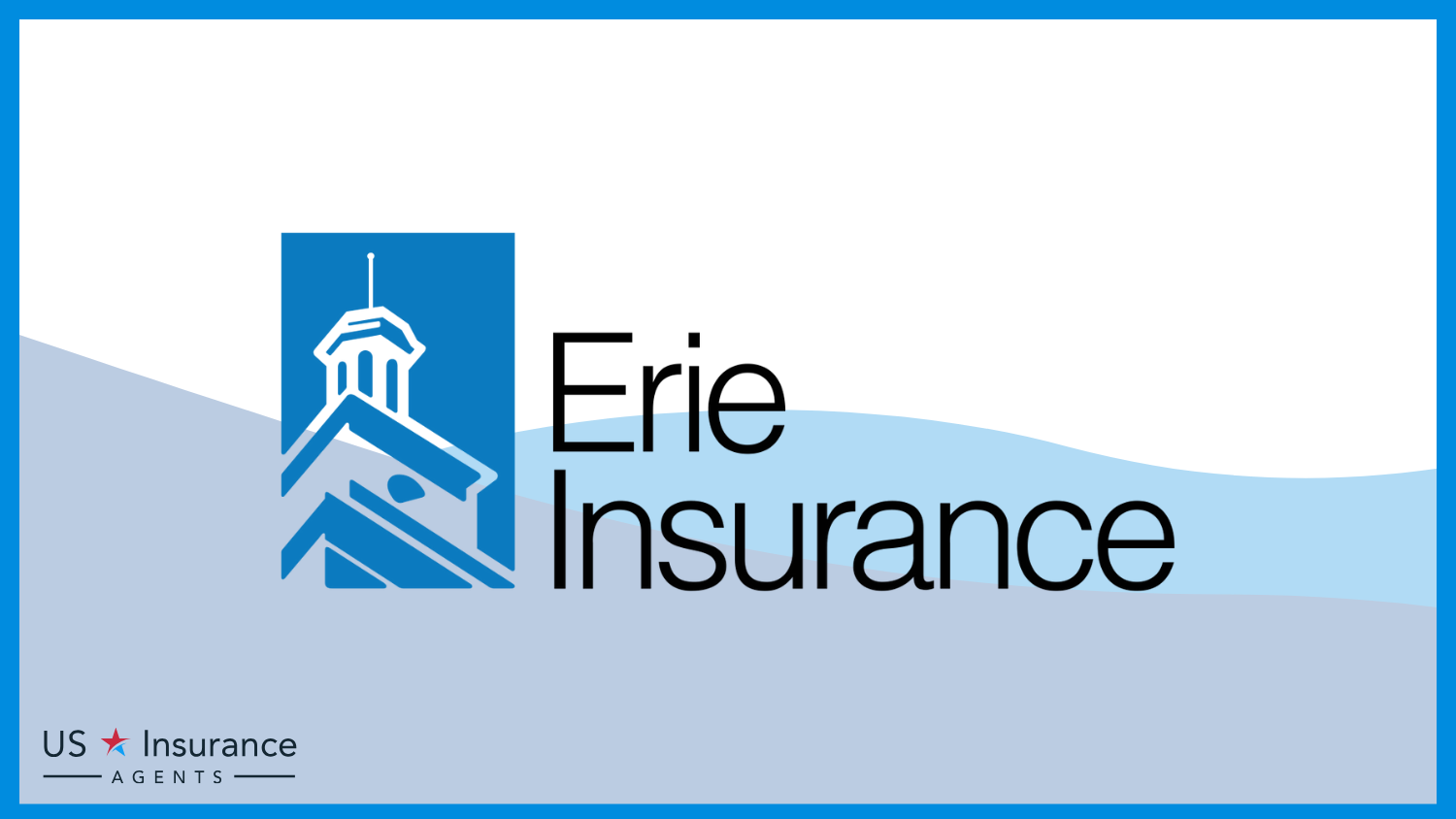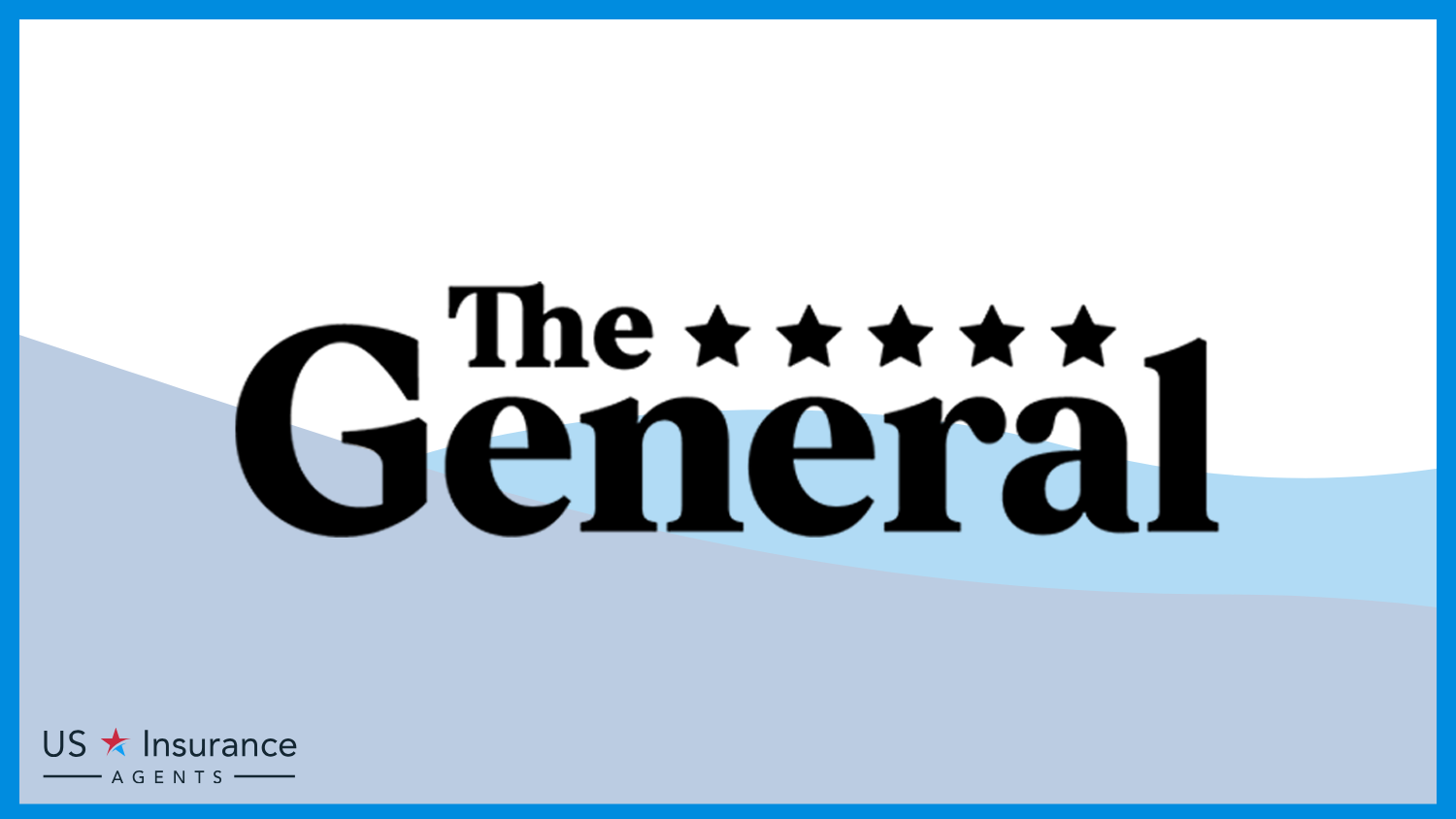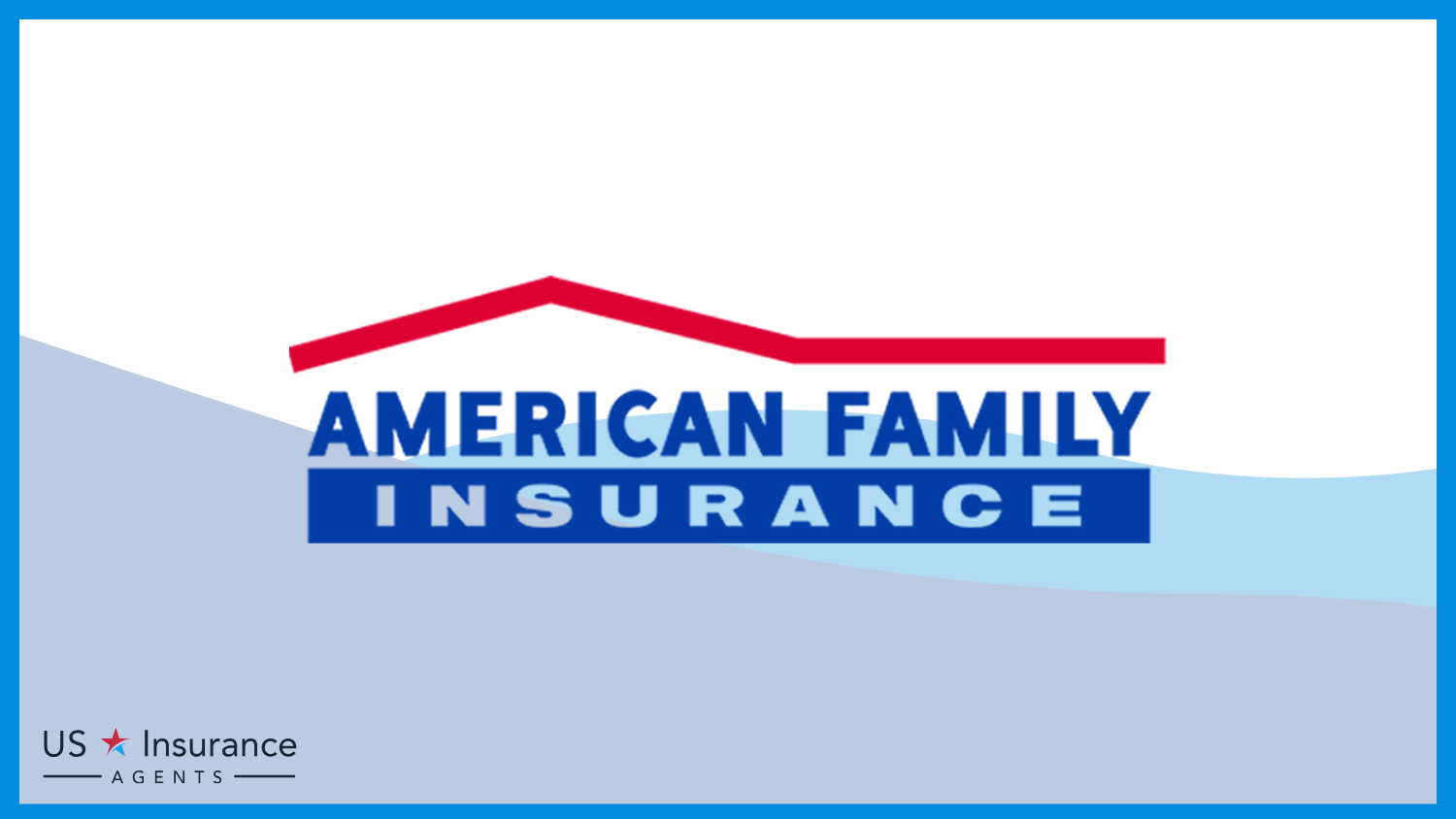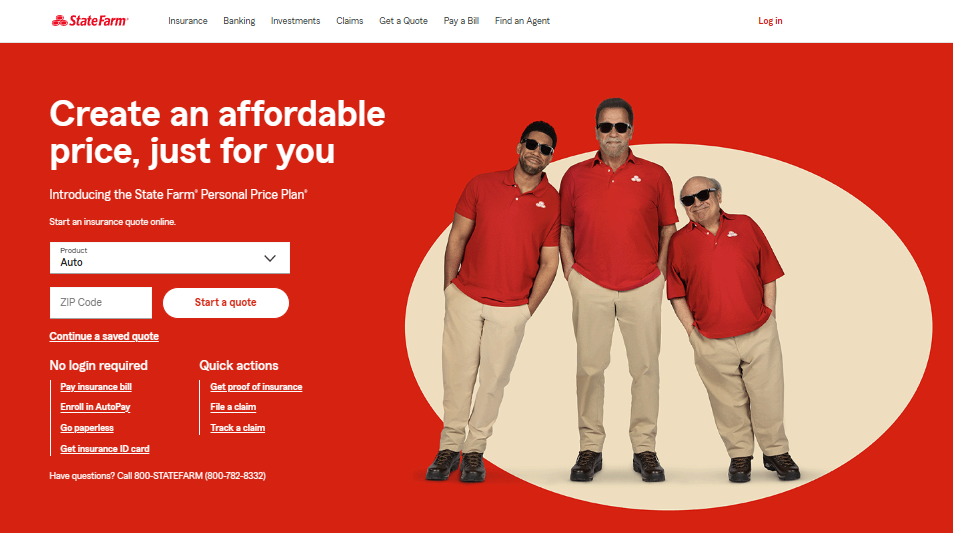Best Car Insurance for Personal Injury Protection (PIP) in 2026 (Top 10 Companies)
State Farm, Allstate, and Nationwide offer the best car insurance for personal injury protection (PIP), with starting at $60 for minimum coverage. These top companies excel due to their comprehensive PIP options, competitive rates, and superior customer service, ensuring excellent protection and value.
Read more Secured with SHA-256 Encryption





Table of Contents
Table of Contents


Insurance and Finance Writer
Dorothea Hudson has been professionally writing in many spheres since 2013. She has written on entertainment, insurance, finance, travel, technology, AI, renewable energy, crypto, fundraising, and real estate for many websites. Her work has been published for British retailer Marks and Spencer, Kroger Magazine, the Vision Group, and more. Her passions include writing, music, running, travel, te...
Dorothea Hudson


Sr. Director of Content
Sara Routhier, Senior Director of Content, has professional experience as an educator, SEO specialist, and content marketer. She has over 10 years of experience in the insurance industry. As a researcher, data nerd, writer, and editor, she strives to curate educational, enlightening articles that provide you with the must-know facts and best-kept secrets within the overwhelming world of insurance....
Sara Routhier


Licensed Insurance Agent
Michelle Robbins has been a licensed insurance agent for over 13 years. Her career began in the real estate industry, supporting local realtors with Title Insurance. After several years, Michelle shifted to real estate home warranty insurance, where she managed a territory of over 100 miles of real estate professionals. Later, Agent Robbins obtained more licensing and experience serving families a...
Michelle Robbins
Updated January 2025
 18,157 reviews
18,157 reviewsCompany Facts
Full Coverage for Personal Injury Protection (PIP)
A.M. Best
Complaint Level
Pros & Cons
 18,157 reviews
18,157 reviews 11,640 reviews
11,640 reviewsCompany Facts
Full Coverage for Personal Injury Protection (PIP)
A.M. Best
Complaint Level
Pros & Cons
 11,640 reviews
11,640 reviews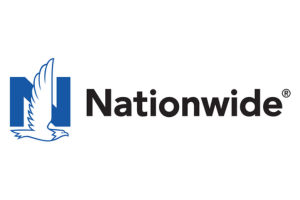 3,071 reviews
3,071 reviewsCompany Facts
Full Coverage for Personal Injury Protection (PIP)
A.M. Best
Complaint Level
Pros & Cons
 3,071 reviews
3,071 reviewsThe best car insurance for personal injury protection (PIP) are State Farm, Allstate, and Nationwide. State Farm stands out with PIP coverage starting at $60, making it the top pick overall. These are the best insurance companies that excel in offering comprehensive PIP options, competitive rates, and exceptional customer service, ensuring optimal protection and value for policyholders.
This article delves into the benefits of PIP, highlighting its coverage for medical expenses and lost wages.
Our Top 10 Company Picks: Best Car Insurance for Personal Injury Protection (PIP)
| Company | Rank | Multi-Car Discount | Safe Driver Discount | Best For | Jump to Pros/Cons |
|---|---|---|---|---|---|
| #1 | 25% | 30% | Comprehensive Coverage | State Farm | |
| #2 | 25% | 20% | Enhanced Protection | Allstate | |
| #3 | 20% | 25% | Nationwide Network | Nationwide | |
| #4 | 10% | 30% | Online Tool | Progressive | |
| #5 | 12% | 30% | Additional Benefits | Liberty Mutual | |
| #6 | 10% | 25% | Customizable Coverage | Farmers | |
| #7 | 8% | 20% | PIP Coverage | Travelers | |
 | #8 | 20% | 30% | Competitive Rates | Erie |
| #9 | 10% | 20% | Specialized Coverage | The General | |
| #10 | 20% | 25% | PIP Options | American Family |
Additionally, it provides a comparative analysis of the leading providers, helping you choose the best PIP coverage for your needs.
Stop overpaying for car insurance. Our free quote comparison tool allows you to shop for quotes from the top providers near you by entering your ZIP code above.
- State Farm is the best car insurance for personal injury protection (PIP)
- Comprehensive PIP options cover medical expenses and lost wages
- The top companies offer competitive rates and exceptional customer service
#1 – State Farm: Top Overall Pick
Pros
- Extensive Coverage: State Farm offers comprehensive coverage, including personal injury protection (PIP), ensuring a wide range of protections for policyholders.
- Excellent Customer Service: State Farm insurance review & ratings reveals for its strong customer service reputation, State Farm provides assistance and support when needed.
- Nationwide Availability: With a vast network, State Farm operates nationwide, providing accessibility to a diverse range of customers.
Cons
- Premium Costs: While offering comprehensive coverage, State Farm’s premiums may be relatively higher compared to some competitors.
- Limited Online Presence: State Farm’s online tools and platforms might be less advanced compared to other insurers.
Free Auto Insurance Comparison
Compare Quotes From Top Companies and Save
Secured with SHA-256 Encryption
#2 – Allstate: Best for Enhanced Protection
Pros
- Enhanced Protection: Allstate offers advanced protection options, including personal injury protection (PIP), to address a variety of insurance needs.
- Innovative Tools: Allstate insurance review & ratings provides innovative tools and resources, such as the Drivewise program, to help customers monitor and improve driving habits.
- Multiple Discounts: Allstate offers various discounts, providing potential savings for policyholders.
Cons
- Premiums: Allstate’s premiums can be on the higher side, especially for policyholders seeking extensive coverage.
- Mixed Customer Reviews: While many customers praise Allstate’s offerings, there are mixed reviews about customer satisfaction.
#3 – Nationwide: Best for Nationwide Network
Pros
- Extensive Network: Nationwide insurance review & ratings has vast network ensures accessibility to a broad range of customers, making it convenient for policyholders.
- Multi-Policy Discounts: Nationwide offers discounts for customers bundling multiple insurance policies, providing cost-saving opportunities.
- Strong Financial Stability: Nationwide’s solid financial standing provides assurance of its ability to meet financial obligations.
Cons
- Average Customer Service: While generally satisfactory, Nationwide’s customer service may not be as exceptional as some competitors.
- Limited Online Features: The online tools and features provided by Nationwide may be more basic compared to other insurers.
#4 – Progressive: Best for Online Tool
Pros
- User-Friendly Online Tools: Progressive insurance review & ratings excels in providing user-friendly online tools, making it easy for customers to manage policies and claims.
- Competitive Rates: Progressive often offers competitive rates, attracting cost-conscious policyholders.
- Name Your Price Tool: Progressive’s innovative Name Your Price tool allows customers to tailor coverage to their budget.
Cons
- Customer Service: Some customers have reported mixed experiences with Progressive’s customer service.
- Limited Agent Network: Progressive relies heavily on online interactions, which may not be suitable for those who prefer in-person interactions.
Free Auto Insurance Comparison
Compare Quotes From Top Companies and Save
Secured with SHA-256 Encryption
#5 – Liberty Mutual: Best for Additional Benefits
Pros
- Additional Benefits: Offers various additional benefits, such as roadside assistance and new car replacement coverage.
- Customizable Policies: Liberty Mutual review & ratings provides flexibility in tailoring policies to meet individual needs.
- Multi-Policy Discounts: Policyholders can benefit from discounts by bundling multiple insurance policies.
Cons
- Higher Premiums: Premiums may be on the higher side, especially for those seeking extensive coverage.
- Mixed Customer Reviews: While many customers appreciate additional benefits, there are mixed reviews regarding customer satisfaction.
#6 – Farmers: Best for Customizable Coverage
Pros
- Customizable Policies: Farmers insurance review & ratings excels in offering customizable coverage options to meet the specific needs of policyholders.
- Extensive Agent Network: With a widespread agent network, Farmers provides personalized assistance and support.
- Variety of Discounts: Farmers offers various discounts, providing potential savings for policyholders.
Cons
- Premium Costs: Farmers’ premiums may be relatively higher compared to some competitors.
- Limited Online Tools: The online tools and features provided by Farmers may not be as advanced as some other insurers.
#7 – Travelers: Best for PIP Coverage
Pros
- PIP Coverage: Travelers offers personal injury protection (PIP) coverage, providing financial support for medical expenses after an accident.
- Strong Financial Stability: Travelers insurance review & ratings has a solid financial standing, ensuring stability and reliability.
- Multiple Coverage Options: Travelers provides a range of coverage options to cater to diverse insurance needs.
Cons
- Limited Discounts: Travelers may offer fewer discounts compared to some competitors, limiting potential savings.
- Average Customer Service: While satisfactory, Travelers’ customer service may not stand out compared to other insurers.
Free Auto Insurance Comparison
Compare Quotes From Top Companies and Save
Secured with SHA-256 Encryption
#8 – Erie: Best for Competitive Rates
Pros
- Competitive Rates: Erie is known for offering competitive rates, making it an attractive option for cost-conscious policyholders.
- Strong Customer Service: Erie insurance review & ratings prioritizes excellent customer service, earning high marks in customer satisfaction.
- Bundle Discounts: Erie offers discounts for policyholders bundling multiple insurance policies.
Cons
- Limited Availability: Erie’s coverage may be limited to specific regions, potentially excluding some customers.
- Online Presence: Erie’s online tools and features may be less advanced compared to larger insurers.
#9 – The General: Best for Specialized Coverage
Pros
- Specialized Coverage: The General car insurance review & ratings specializes in providing coverage for high-risk drivers, offering solutions for those with challenging driving records.
- Quick Quotes: The General is known for providing quick and accessible insurance quotes.
- SR-22 Insurance: The General offers SR-22 insurance, catering to individuals who need to file this form for various reasons.
Cons
- Limited Coverage Options: The General may have limited coverage options compared to more comprehensive insurers.
- Mixed Customer Reviews: Customer reviews for The General are mixed, with some praising accessibility and others citing concerns.
#10 – American Family: Best for PIP Options
Pros
- PIP Options: American Family insurance review & ratings offers personal injury protection (PIP) options, providing coverage for medical expenses after an accident.
- Variety of Discounts: American Family offers various discounts, allowing policyholders to potentially save on premiums.
- Strong Community Involvement: American Family is actively involved in community initiatives and social responsibility.
Cons
- Premium Costs: American Family’s premiums may be relatively higher compared to some competitors.
- Limited Availability: American Family’s coverage may be limited to specific regions, potentially excluding some customers.
Free Auto Insurance Comparison
Compare Quotes From Top Companies and Save
Secured with SHA-256 Encryption
Car Insurance for Personal Injury Protection (PIP) Coverage Rates
When it comes to choosing the right car insurance, the rates for personal injury protection (PIP) play a significant role in determining the overall affordability and level of financial security. Different insurance providers offer varying rates for both minimum and full coverage, reflecting the diversity in their offerings.
In this comparative analysis, we’ll explore the specific coverage rates provided by leading insurers, shedding light on the options available for individuals seeking PIP coverage.
Car Insurance Monthly Rates for Personal Injury Protection (PIP) by Coverage Level & Provider
| Insurance Company | Minimum Coverage | Full Coverage |
|---|---|---|
| Allstate | $65 | $130 |
| American Family | $65 | $130 |
| Erie | $60 | $120 |
| Farmers | $65 | $130 |
| Liberty Mutual | $75 | $150 |
| Nationwide | $55 | $110 |
| Progressive | $70 | $140 |
| The General | $80 | $160 |
| Travelers | $70 | $140 |
| State Farm | $60 | $120 |
Examining the minimum and full coverage rates for personal injury protection (PIP) from notable insurance companies reveals distinct pricing structures. State Farm offers PIP coverage starting at $60 for minimum coverage and $120 for full coverage.
Allstate, Nationwide, Farmers, and American Family provide options with rates ranging from $55 to $65 for minimum coverage and $110 to $130 for full coverage. On the higher end, Liberty Mutual, Progressive, Travelers, and The General offer PIP coverage starting at $70 for minimum coverage and $140 for full coverage. Erie stands out with competitive rates, providing PIP coverage at $60 for minimum and $120 for full coverage.
While rates may vary across insurers, this analysis provides a comprehensive overview, allowing consumers to make informed decisions based on their unique needs and budget considerations. It’s advisable to explore the coverage options and associated rates offered by different insurers to find the most suitable PIP coverage for individual circumstances.
Understanding Personal Injury Protection (PIP)
PIP is a type of coverage that extends beyond basic liability insurance. Unlike liability insurance, which only covers damages to the other party in an accident for which you are at fault, PIP takes care of medical expenses for you, your passengers, and even pedestrians regardless of who caused the accident. PIP is often called “no-fault” insurance because it pays out regardless of fault.
When you have PIP coverage, you can seek medical attention immediately after an accident without worrying about the financial burden. From hospital bills and doctor appointments to rehabilitation and lost wages, PIP will bear the costs of your recovery within the limits of your policy. For more insight, read our guide “Best Comprehensive Healthcare Companies”
Why PIP is Important in Car Insurance
PIP is an important component of car insurance because it provides an additional layer of protection beyond liability insurance coverage. While liability coverage ensures that another person’s medical expenses are taken care of, PIP extends the coverage to yourself and your passengers.
Since accidents can happen to anyone, PIP allows you to access medical treatment whether you caused the accident or not. This type of coverage is particularly important if you live in a state with no-fault insurance laws, where PIP is mandatory. Even if you reside in a state without such laws, having PIP can offer you peace of mind and financial security in case of accidents.
Free Auto Insurance Comparison
Compare Quotes From Top Companies and Save
Secured with SHA-256 Encryption
The Benefits of Personal Injury Protection Coverage
Personal injury protection coverage offers several benefits to policyholders, making it an attractive option when considering car insurance. One of the most significant advantages is the immediate availability of funds for medical treatment and other accident-related expenses. This quick access ensures that you receive the necessary care without delay, allowing for a smoother recovery process.
Furthermore, PIP covers a comprehensive range of medical expenses, including ambulance services, hospital stays, surgeries, and follow-up care. It also accounts for lost wages during the recovery period, helping ease the financial burden caused by injury and time away from work.
In addition to covering medical expenses, PIP can also provide compensation for essential services such as childcare and household chores that become challenging to manage during the recovery process. This compensation acknowledges the impact an accident can have on daily life and aims to lessen the stress placed on the injured party.
How to Choose the Right Car Insurance With PIP
When selecting car insurance, it’s crucial to consider various factors to choose a policy that offers the best PIP coverage for your needs. Start by understanding the minimum PIP requirements in your state. Some states have specific minimum coverage amounts that you must adhere to, while others have no-fault insurance laws that may impact the level of coverage.
Next, assess your personal circumstances to determine how much PIP coverage you require. Consider factors such as your health insurance coverage, the number of passengers regularly in your vehicle, and the potential financial impact of lost wages in case of an accident. These considerations will allow you to determine the optimal PIP coverage limits for your insurance policy.
Once you have determined your coverage needs, it’s time to compare car insurance providers. Look for reputable companies with a history of excellence in customer service and claims handling. Evaluate their PIP coverage options, the flexibility of their policies, and any additional benefits they may offer.
Obtaining quotes from multiple providers is highly recommended, as it allows you to compare prices and the overall value of the coverage offered. Remember, the best car insurance for PIP is not necessarily the cheapest option but the one that provides adequate coverage tailored to your specific requirements.
Exploring Different PIP Coverage Options
When exploring different PIP coverage options, it’s important to understand the types of expenses each policy covers. PIP policies typically include coverage for medical expenses, lost income, and essential services, but the specific details may vary among providers. To delve deeper, refer to our in-depth report titled “Low Mileage Car Insurance Discount.”
Medical expense coverage typically encompasses costs related to doctor visits, hospital stays, surgeries, prescription medications, and rehabilitation services. Lost income coverage compensates for the wages you may lose as a result of your injuries, ensuring that you are not burdened financially while recovering.
Some providers offer essential services coverage, which can assist with expenses for household chores, childcare, or transportation to medical appointments. This coverage can be invaluable in helping you maintain a sense of normalcy during recovery. Understanding the extent of coverage offered by different insurers will enable you to select a policy that aligns with your specific needs and provides necessary financial protection in case of an accident.
Personal injury protection (PIP) coverage is designed to cover various expenses associated with car accidents, including medical expenses, lost income due to injuries, and necessary services like childcare or housekeeping support.
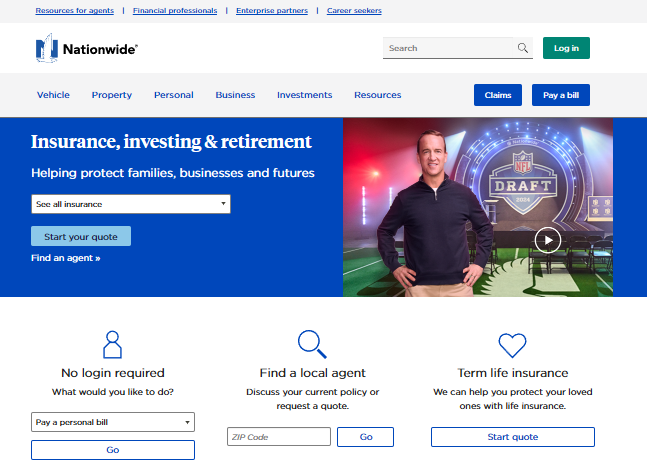
However, PIP has certain limitations and exclusions, such as coverage limits and exclusions for property damage, intentional or criminal acts, racing, off-road activities, or commercial use of the vehicle. It is crucial to review your policy to fully understand what PIP covers and what it doesn’t, helping you manage expectations and ensure appropriate coverage for your needs.
Free Auto Insurance Comparison
Compare Quotes From Top Companies and Save
Secured with SHA-256 Encryption
Comparing PIP Coverage From Top Insurance Providers
When comparing PIP coverage from top insurance providers, pay attention to the limits and deductibles associated with each policy. Ensure the coverage limits are sufficient for your situation and be mindful of any applicable deductibles.
Additionally, review the claim settlement process, seeking providers with a reputation for timely claims processing and fair settlements, as a responsive claims department can expedite the compensation process. For a thorough understanding, refer to our detailed analysis titled “How to Document Damage for Car Insurance Claims.”
Consider any additional benefits or discounts offered by each provider, such as loyalty discounts, accident forgiveness, or roadside assistance, which can enhance the value of your car insurance policy. By thoroughly comparing PIP coverage from various insurers, you can select the best car insurance that offers comprehensive protection and excellent customer service.
Tips for Saving Money on Car Insurance With PIP
While obtaining adequate PIP coverage is essential, it’s also crucial to consider ways to save money on your car insurance premium. Here are a few tips to help you lower your expenses:
- Compare Quotes: Obtain insurance quotes online from multiple insurance providers to identify the most competitive rates for PIP coverage that meets your needs.
- Bundle Policies: Consolidate your car insurance policy with other types of insurance, such as homeowners or renter’s insurance, to qualify for a multi-policy discount.
- Maintain a Good Driving Record: Avoid accidents and traffic violations to keep your driving record clean, which can help reduce your insurance costs.
- Increase Deductibles: By opting for higher deductibles, you can lower your monthly premium. However, ensure that you can comfortably afford the deductible amount in case of an accident.
- Review Coverage Annually: Regularly assess your insurance needs and coverage limits to ensure that you are not paying for unnecessary coverage or overlooking essential protection.
By implementing these tips, you can strike a balance between obtaining adequate PIP coverage and saving money on your car insurance premiums.
Common Misconceptions About Personal Injury Protection
While personal injury protection provides invaluable coverage, there are some common misconceptions surrounding its purpose and limitations. Let’s debunk a few of these misconceptions:
- PIP Only Necessary With Health Insurance: While having health insurance is important, it may not cover all medical expenses incurred due to a car accident. PIP is designed specifically to cover accident-related medical costs, ensuring comprehensive coverage for injuries sustained in an auto accident.
- PIP Replaces Liability Insurance: PIP is a supplement to, not a replacement for, liability insurance. While PIP coverage takes care of your own medical expenses and related costs, liability insurance protects you financially in case you cause an accident that injures someone else.
- PIP Unnecessary With Good Health and Disability Insurance: While having other forms of insurance coverage can be beneficial, PIP fills gaps that may exist in your existing coverage. For example, it provides immediate access to funds without the need to wait for insurance claims to be processed.
- PIP is Expensive: The cost of PIP coverage varies depending on factors such as your location, driving history, and the coverage limits you choose. By comparing quotes and exploring discounts, you can find affordable PIP coverage that fits within your budget.
It’s important to dispel these misconceptions to fully understand the value and necessity of personal injury protection coverage, ensuring you make informed decisions when selecting the best car insurance for your needs. To gain profound insights, consult our extensive guide titled “Types of Car Insurance Coverage.”
Free Auto Insurance Comparison
Compare Quotes From Top Companies and Save
Secured with SHA-256 Encryption
The Legal Requirements for PIP Coverage in Your State
When it comes to personal injury protection coverage, legal requirements can vary from state to state. Some states mandate the inclusion of PIP coverage in automobile insurance policies, while others do not require it. However, even in states where PIP is not compulsory, it is still highly recommended to have this coverage.
If you reside in a state where PIP is mandatory, familiarize yourself with the specific requirements regarding coverage limits and deductibles. Understanding the legal obligations will help you select a policy that complies with the local regulations and provides the necessary protection. For additional information, read our recent article: What Does Car Insurance Cover?
For states without mandatory PIP coverage, it is crucial to assess the potential financial implications of accidents and injuries. Consider the medical expenses you may have to bear and the impact of lost wages if you are unable to work due to injuries. PIP coverage can provide the necessary safety net and protect you against unforeseen financial burdens.
Understanding the Claims Process For PIP Coverage
When it comes to filing a claim for PIP coverage, understanding the process can help streamline the entire experience. The exact claims process may vary slightly depending on the insurance company, but the basic steps typically involve:
- Report the Accident: Notify your insurance company promptly after the accident, providing all the relevant details, including date, time, location, and parties involved. Documentation, such as police reports and medical records, may be required.
- Seek Medical Attention: Receive prompt medical treatment for your injuries and retain all documentation related to the diagnosis, treatment, and expenses incurred. Your insurance company may require this information for claim verification.
- Complete Claim Forms: Fill out the necessary claim forms provided by your insurance company accurately and promptly. Pay attention to any submission deadlines to ensure your claim is processed in a timely manner. Read more: What Should I Do If My Car Insurance Claim Is Denied?
- Provide Supporting Documentation: Gather and attach all supporting documents, such as medical bills, receipts, and proof of lost wages, needed to substantiate your claim. Ensure that you retain copies of all documents for your records.
- Cooperate with the Claims Adjuster: Work closely with the claims adjuster assigned to your case. They may request additional information or documentation to assess your claim. Respond promptly and provide complete and accurate information to expedite the process.
- Review Settlement Offer: Once your claim is evaluated, the insurance company will make a settlement offer. Review the terms carefully and assess whether the offer adequately covers your damages and expenses. Consult with legal counsel if necessary.
- Accept or Negotiate: If you are satisfied with the settlement offer, you can accept it and receive the agreed-upon compensation. However, if you believe the compensation is insufficient, you can negotiate with the insurance company to reach a satisfactory resolution.
Understanding the claims process and cooperating with your insurance company can greatly simplify the process of obtaining compensation for accident-related expenses through your PIP coverage.
PIP vs Medical Payments Coverage
In addition to PIP, some car insurance policies offer Medical Payments Coverage (MedPay). While both cover medical expenses, PIP is more comprehensive, covering not only medical expenses but also lost wages and essential services. MedPay focuses solely on medical expenses and does not provide the same breadth of coverage.
Another significant difference is that PIP is considered “no-fault” coverage, meaning it pays out regardless of fault in the accident. MedPay, however, is subject to the fault-based system and will only cover expenses if the insured party is found not to be at fault. For additional information, read our recent article: Collision Car Insurance: A Complete Guide
The decision between PIP and MedPay ultimately depends on your specific circumstances and the coverage options available to you. PIP is generally a more comprehensive and flexible choice, providing broader protection and benefits that may be invaluable in accident-related situations.
Free Auto Insurance Comparison
Compare Quotes From Top Companies and Save
Secured with SHA-256 Encryption
Case Studies: Demonstrating Support and Assurance From Top Insurers of Personal Injury Protection (PIP)
Personal injury protection (PIP) is a crucial part of auto insurance, offering essential support after car accidents. This coverage ensures policyholders receive timely assistance for medical expenses, lost wages, and other necessary services. Let’s explore three case studies that highlight the support and assurance provided by top insurers through their PIP coverage, demonstrating its invaluable role in easing financial and emotional burdens.
- Case Study #1 – Medical Emergency: John, a State Farm policyholder, was severely injured in a car accident. State Farm’s PIP coverage immediately covered his medical expenses, including hospital stays, surgeries, and rehabilitation. This quick and comprehensive support allowed John to focus on his recovery without worrying about financial burdens.
- Case Study #2 – Claims Process and Financial Support: Emily, an Allstate policyholder, was injured in a car accident. Allstate’s streamlined claims process enabled her to report the accident promptly and receive coverage for medical expenses and lost wages. The efficient claims handling and quick settlement provided Emily with the financial support she needed during her recovery.
- Case Study #3 – Comprehensive Coverage: Sarah, a Nationwide policyholder, was in a car accident that left her unable to perform household chores and childcare. Nationwide’s PIP coverage extended beyond medical expenses, providing compensation for essential services. This support helped Sarah maintain a sense of normalcy during her recovery.
These case studies showcase the significant impact of strong personal injury protection (PIP) coverage from top insurers. From immediate medical support and smooth claims processes to comprehensive coverage for essential services, PIP helps individuals cope with the aftermath of car accidents. Expand your knowledge with our “Car Safety: Drunk Driving Prevention Guide for Teens and Adults”.
Jeff Root Licensed Life Insurance Agent
The experiences emphasize the importance of choosing an insurance provider that offers extensive PIP benefits and prioritizes customer support, ensuring protection and peace of mind when it matters most. Stop overpaying for car insurance. Our free quote comparison tool allows you to shop for quotes from the top providers near you by entering your ZIP code.
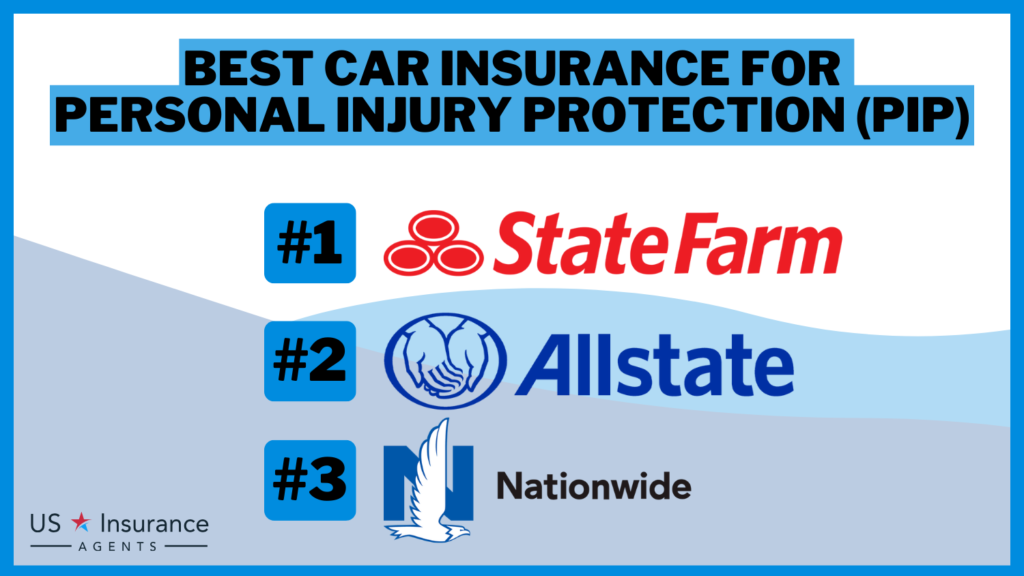
Frequently Asked Questions
What is personal injury protection (PIP) coverage, and why is it important in car insurance?
Personal injury protection (PIP) is car insurance that covers medical expenses, lost wages, and other services after a car accident, regardless of who is at fault. It provides immediate funds for medical treatment and offers extra protection beyond basic liability insurance.
To delve deeper, read our guide titled “How much is car insurance“
How do State Farm, Allstate, and Nationwide stand out in providing Personal Injury Protection (PIP) coverage?
State Farm, Allstate, and Nationwide are top choices for PIP coverage. State Farm offers extensive coverage nationwide. Allstate provides advanced protection options and innovative tools. Nationwide has a strong network and offers multi-policy discounts.
Get the right car insurance at the best price — enter your ZIP code to shop for coverage from the top insurers.
What does PIP car insurance typically cover?
PIP covers medical expenses, such as hospital visits, doctor’s fees, and rehabilitation. It also covers lost wages, childcare expenses, and essential services you can’t perform due to the accident.
What are the key factors to consider when choosing the right car insurance with PIP coverage?
Consider coverage benefits, claims processes, and cost-saving strategies. Compare quotes from different insurers, check their reputation for customer service, and make sure the policy fits your needs and budget.
Discover more by reading our: Car Accidents: What to do in Worst Case Scenarios
How do PIP coverage rates vary among leading insurers, and what factors influence these rates?
PIP rates vary among insurers. For example, State Farm starts at $60 for minimum coverage and $120 for full coverage. Rates depend on location, driving history, and coverage limits.
What are the common misconceptions about Personal Injury Protection (PIP) coverage, and how can they be addressed?
Misconceptions include thinking PIP is unnecessary if you have health insurance or that it replaces liability insurance. PIP covers specific accident-related costs, complements liability insurance, and fills gaps in existing coverage. Costs vary based on location and coverage limits.
What should you do if you need to file a PIP claim after an accident?
Contact your insurance company immediately. Provide necessary documents like medical bills and proof of lost wages. Follow the insurer’s instructions and keep records of all communications and documents.
Is PIP coverage mandatory in all states?
No, PIP is not mandatory in all states. Some states require it, especially those with no-fault insurance laws. Even if not required, it’s recommended for added protection.
Explore further by checking out our: 10 Deadliest Cities for Drivers
Can you customize your PIP coverage?
Yes, many insurers let you customize PIP coverage. You can choose coverage limits and deductibles to balance your needs and affordability.
How does PIP coverage differ from Medical Payments (MedPay) coverage?
PIP covers medical expenses, lost wages, and essential services, and operates on a no-fault basis. MedPay only covers medical expenses and may depend on fault in an accident.
Just enter your ZIP code into our free comparison tool below to instantly compare quotes near you.
Get a FREE Quote in Minutes
Insurance rates change constantly — we help you stay ahead by making it easy to compare top options and save.
